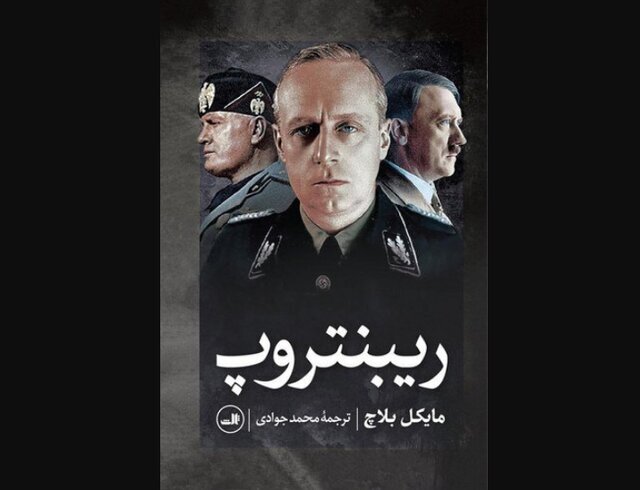Biography of Hitler’s foreign minister published in Persian
TEHRAN-The Persian translation of the book “Ribbentrop” by Michael Bloch has been released in the bookstores across Iran.f Saless Publication has brought out the book in 598 pages with a translation by Mohammad Javadi, ISNA reported. Penned by one of the pre-eminent writers of his generation, the book focuses on the life of Joachim von


TEHRAN-The Persian translation of the book “Ribbentrop” by Michael Bloch has been released in the bookstores across Iran.f
Saless Publication has brought out the book in 598 pages with a translation by Mohammad Javadi, ISNA reported.
Penned by one of the pre-eminent writers of his generation, the book focuses on the life of Joachim von Ribbentrop, Hitler’s Foreign Minister from 1938 until the end of the Third Reich. At the heart of German power during the war, this strange, sinister, and intriguing character was violently anti-British, and he encouraged Hitler in a policy that led to war with Great Britain. His grandiose attempts at alliance-building produced a disastrous military coalition with Italy and Japan and the infamous Pact with the Soviet Union. It was a career that would end on the gallows at Nuremberg, where he headed the death procession.
Written with verve, pace, and the subtle intelligence of a world-class biographer, Bloch’s universally praised book vividly portrays this bizarre and historically neglected figure.
Joachim von Ribbentrop (1893-1946) first came to Adolf Hitler’s notice as a well-traveled businessman with more knowledge of the outside world than most senior Nazis and as a perceived authority on foreign affairs. He offered his house Schloss Fuschl for the secret meetings in January 1933 that resulted in Hitler’s appointment as Chancellor of Germany. He became a close confidant of Hitler, to the dismay of some party members, who thought him superficial and lacking in talent. He was appointed ambassador to the Court of St James’s, the royal court of the United Kingdom, in 1936 and then Foreign Minister of Germany in February 1938.
Before World War II, he played a key role in brokering the Pact of Steel (an alliance with Fascist Italy) and the Molotov–Ribbentrop Pact (the Nazi-Soviet non-aggression pact). He favored retaining good relations with the Soviets, opposing the invasion of the Soviet Union. In late 1941, due to American aid to Britain and the increasingly frequent “incidents” in the North Atlantic between U-boats and American warships guarding convoys to Britain, Ribbentrop worked for the failure of the Japanese-American talks in Washington and for Japan to attack the United States. He did his utmost to support a declaration of war on the United States after the attack on Pearl Harbor. From 1941 onwards, Ribbentrop’s influence declined.
Arrested in June 1945, Ribbentrop was convicted and sentenced to death at the Nuremberg trials for his role in starting World War II in Europe and enabling the Holocaust. On October 16, 1946, he became the first of the Nuremberg defendants to be executed by hanging.
Michael Bloch, 71, is an author and historian. Educated at Portadown College and St John’s College, Cambridge, he was called to the bar by the Inner Temple in 1978 and in 1979 became an assistant to Maître Suzanne Blum, the Parisian lawyer of the Duke and Duchess of Windsor.
Bloch’s books include several about the Duke and Duchess, an authorized biography of James Lees-Milne, a study of the Liberal leader Jeremy Thorpe, and a biography of Frederick Matthias Alexander, founder of the Alexander Technique.
SS/SAB
